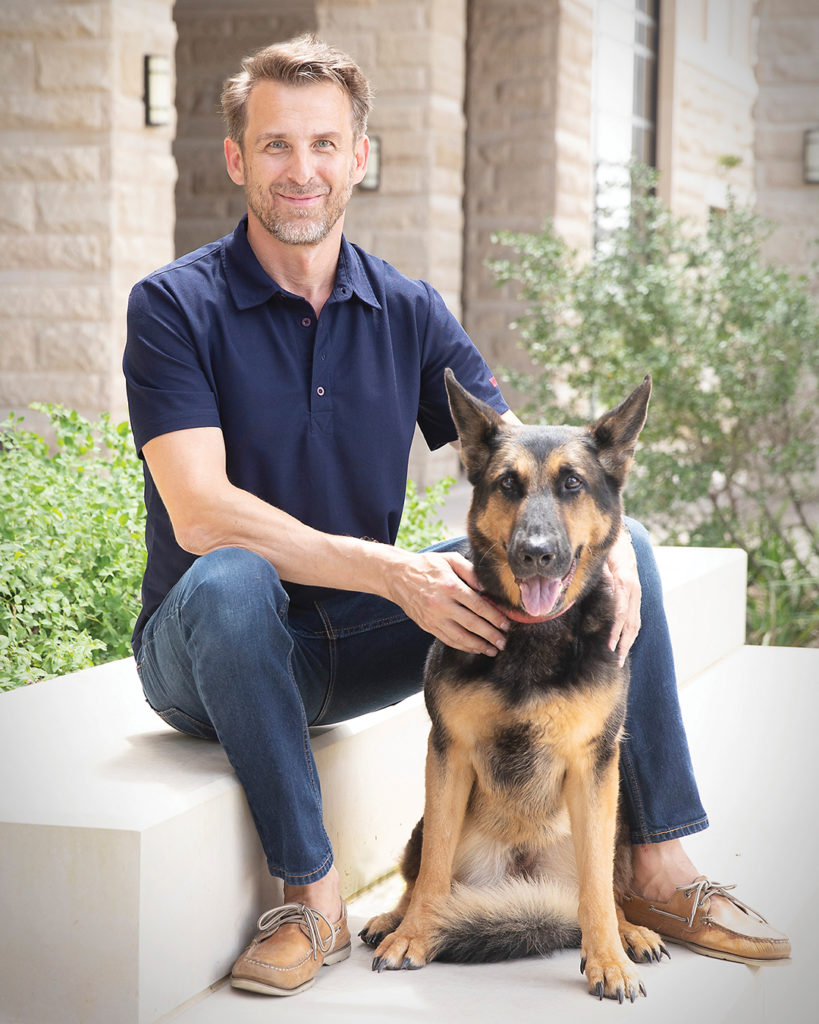Texas A&M Is Home To World’s Top Two Dog Experts
Story by Megan Myers, VMBS Communications
In addition to employing the top two experts on the topic, Texas A&M University is listed as the world’s fifth most knowledgeable institution on dogs.

The top two experts on dogs in the world are faculty members at the Texas A&M School of Veterinary Medicine & Biomedical Sciences (VMBS), according to the life sciences search engine system Expertscape.
The top-ranked expert for the topic “dogs” is Dr. Jan Suchodolski, a VMBS professor, the associate director for research in the VMBS’ Gastrointestinal Laboratory, and the Purina Petcare Endowed Chair for Microbiome Research. Close behind him at No. 2 is Dr. Jörg Steiner, a Regents Professor, University Distinguished Professor, the director of the GI Lab, and the Dr. Mark Morris Chair in Small Animal Gastroenterology & Nutrition.
Expertscape is an artificial intelligence system that objectively ranks experts in the life sciences based on all medical journal articles published in the past 10 years.
Each publication is assigned a score based on how recently it was published, the journal it appeared in, and the article’s type (for example, research and clinical studies will rank high than editorial pieces). The system also factors in if an expert was first author, second author, etc.
These scores are then used to determine the top countries, regions, cities, institutions, and individual experts for more than 29,000 topics.
“Jan and Joerg are both so humble, generous, and collaborative, it is easy to forget their international renown and the huge impact of their studies,” said Dr. Michael Criscitiello, VMBS associate dean for Research & Graduate Studies. “We are very fortunate to have the GI lab and that that they have led to global prominence, elevating our research and training environment here at A&M.”
About The Experts

Suchodolski and Steiner share several aspects of their careers in addition to their expertise on dogs; both earned their doctoral degrees in veterinary medicine overseas—Suchodolski in Austria and Steiner in Germany—and both are members of several prestigious national and international associations for veterinary gastroenterologists and internal medicine specialists.
Much of Suchodolski’s research involves working to understand the microbiome and metabolome (the complete set of small-molecule chemicals produced during metabolism) of cats and dogs, including how they interact with antibiotics.
His work has been funded by the American Kennel Club Canine Health Foundation, the United States Department of Agriculture, the U.S. Department of Defense, and more.
According to Expertscape, Suchodolski has contributed to 164 articles about dogs.
Steiner’s research often involves the pancreas, hepatobiliary system, and the gastrointestinal system. One of his most notable accomplishments is the development of a diagnostic test for pancreatitis, the first of its kind.
Steiner has contributed to 153 articles about dogs, according to Expertscape.
Together, and with the other seven faculty members and GI Lab staff members, they also help an international clientele of veterinarians diagnose and treat gastrointestinal diseases in dogs and cats.
###
For more information about the Texas A&M College of Veterinary Medicine & Biomedical Sciences, please visit our website at vetmed.tamu.edu or join us on Facebook, Instagram, and Twitter.
Contact Information: Jennifer Gauntt, Director of VMBS Communications, Texas A&M College of Veterinary Medicine & Biomedical Sciences, jgauntt@cvm.tamu.edu, 979-862-4216


